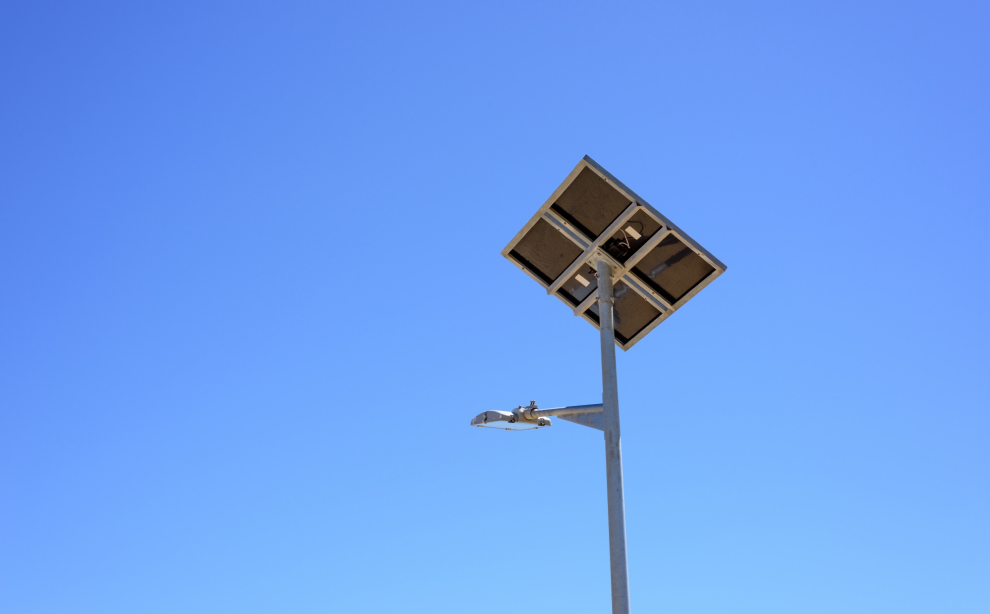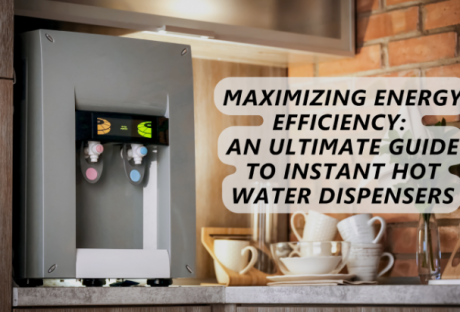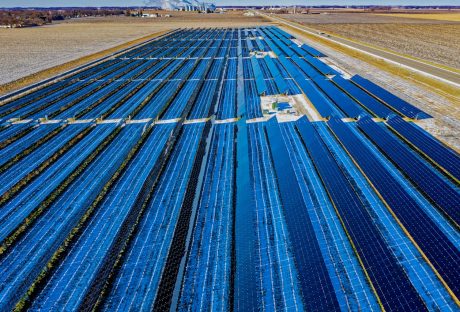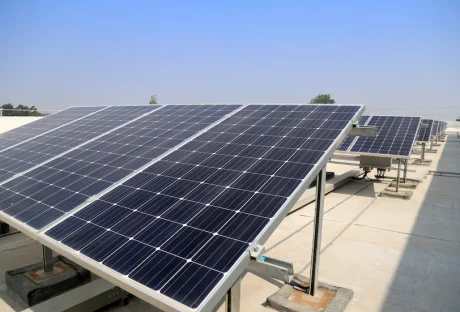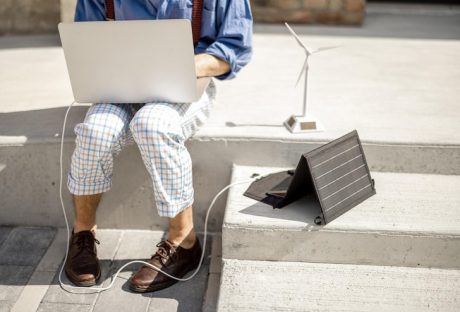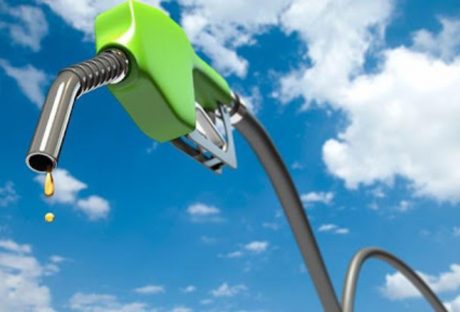Looking to brighten up the outside of your business in an eco-friendly and budget-friendly way? Well, you might want to consider commercial solar lights. They not only provide reliable lighting but also help you go green and cut down on your operating costs. Keep reading to discover more about the benefits of commercial solar lights and how to choose the right company to install them.
Difference Between Non-Commercial And Commercial Solar Lights
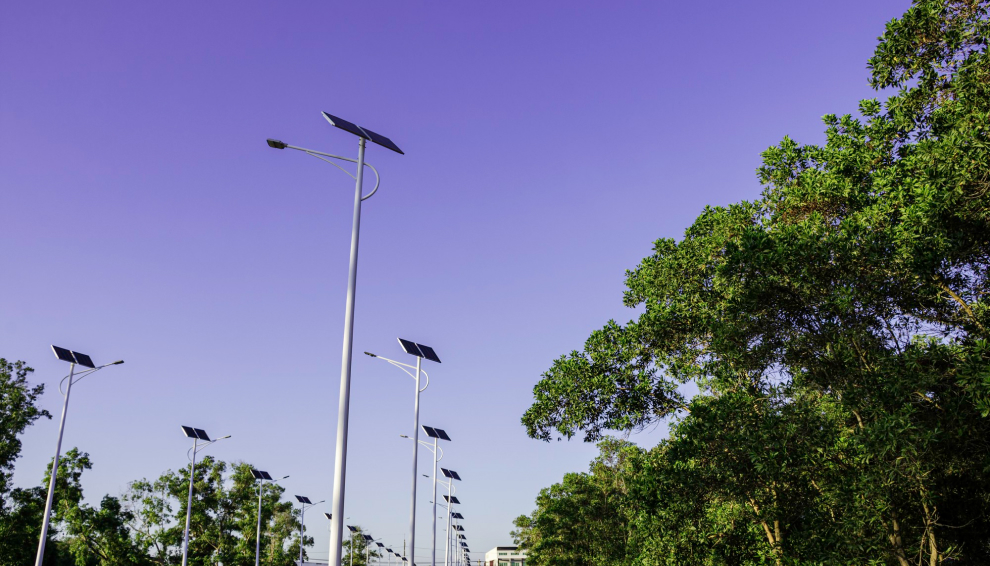
Like all lighting options, solar lights can be both small and large scale. Most people assume both have similar mechanisms of action and are just the same. However, that is not true!
Commercial solar lights cover large spaces such as streets, huge security areas, roads, and paths. These also cost a lot more than non-commercial systems. Non-commercial solar lights are those that we can use to illuminate homes. Other than the difference in battery capacities, these two do not differ in other specifications. The non-commercial lights have less battery storage capacity than commercial lights.
Harnessing the Power of the Sun
Commercial lights are all about making the most of the sun’s energy. They use something called photovoltaic cells, which are like little energy converters. These cells soak up sunlight during the day and turn it into electricity, storing it in batteries for use at night. The cool thing is, you don’t need to rely on traditional power sources like electrical grids anymore. It’s like getting free energy from the sun!
Exceptional Energy Efficiency
Solar lights are pretty impressive because they’re super energy-efficient. They’re designed to give you strong and reliable light without using up a lot of power. They use something called LED technology, which is like a tiny light bulb that’s really good at saving energy. So, when you compare solar lights to regular lights, they save a lot of energy and help you cut down on your electricity bill.
Everything You Need To Know About Commercial Solar Lights
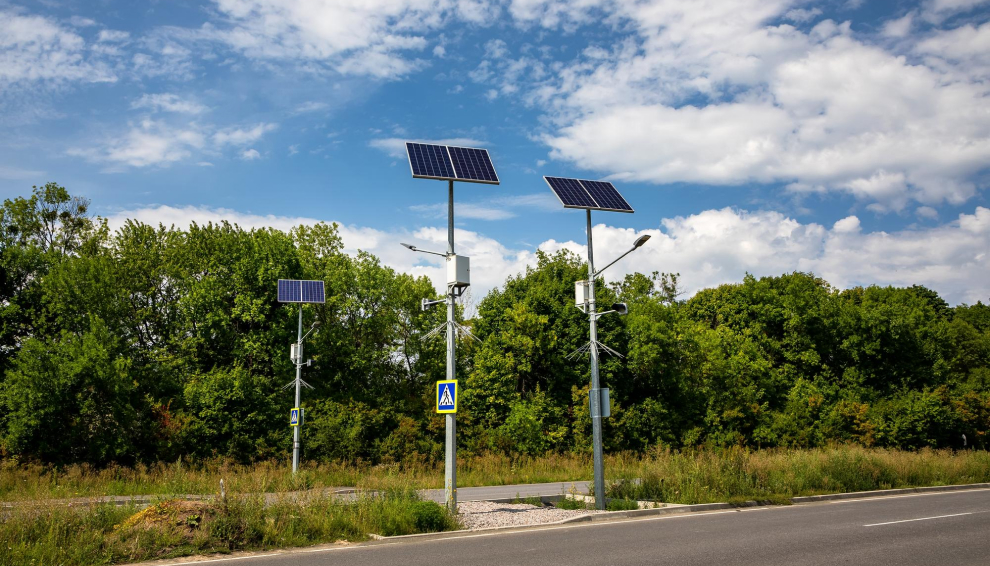
Sustainability is important for improving the current global conditions. Installing commercial solar lights takes us a step closer to that goal. Using commercial solar lights for outdoor lighting does not just help improve the space. It also helps the environment.
Here are the important things you need to keep in mind:
1. How much sunlight does the space receive?
You will come across an integrated outdoor solar light or other solar lighting solution in a major city. Usually, these are in spaces that are not overcrowded with skyscrapers, receiving ample sunlight for the solar lights to store.
Picking a space that allows easy solar street light post installation is imperative. For example, the location’s condition will help determine what you can expect from the product. Things to keep in mind are optimal software and hardware specifications that ensure smooth working. The area may have obstructions that can hinder the light’s performance. Thus, in such a situation, your alternative would be installing a longer light post for it to work properly.
2. Size of the area you want to illuminate
Outdoor commercial solar lights have systems that often have two distinct light units: High-intensity discharge (HID) lights and light-emitting diodes (LED). However, more recently, the use of LEDs is more beneficial. The energy-saving ability of LEDs is what helps it provide better illumination. Thus, before installation, you must decide which type of luminaires you want for your outdoor lighting needs.
Commercial solar LED light will be suitable if the area you consider illuminating has a broad space. Moreover, wattage requirements should also be decided beforehand. The rule of thumb is to use higher-wattage lights (or electrical products) as they become cost-efficient in the long run.
3. Software specifications you need to keep in mind
Commercial solar lights come with Smart technologies, and some may not have that. However, it is wise to select a product that offers different controls. The trend of smart lights should not stay limited to indoor lighting. Thus, choose an option that has intelligent control tools. These improve the overall efficiency of the installed lights and guarantee a great value for your money!
4. Cost of the installation
Outdoor lighting systems can become expensive to install and maintain. Depending on the space you want to illuminate, the cost can change. The expenses can be divided between- running electrical cables, connecting to the grid, and trenching. Then, there are operational costs, electricity bills, and ongoing maintenance costs, all of which can become quite burdensome.
Moreover, with the common idea that cheap can be synonymous with poor quality, asking the service provider is helpful. You should also remember that using less-energy-consuming products will be better than an energy-inefficient system.
Advantages of Commercial Solar Lights
Saving Money
One of the best things about commercial lights is that they can save you a lot of money. Once you set them up, they hardly cost anything to run. You won’t have to worry about paying high electricity bills or spending a lot on maintenance. This means businesses can use their money more wisely.
Good for the Environment
Solar lights are also great for the environment. They help you use less fossil fuels and electricity from power grids, which is a big deal for reducing pollution and taking care of the planet. So, when businesses use solar lights, they’re showing that they care about the environment and want to help make the world more sustainable.
Built to Last
Commercial lights are tough cookies! They’re made from strong materials that can handle all kinds of weather, even when it gets really rough outside. These lights are like the superheroes of the lighting world – they keep working, no matter what the weather is like. Plus, lots of them have backup batteries, so they stay on even when the sun isn’t shining. That means you can count on them to light up your space, no matter what.
Choosing a Commercial Outdoor Lighting Company
Go for One With a Proven Track Record
When you’re looking for a company to help with your commercial solar lights, it’s smart to pick one with a proven track record. Companies that have been doing this for a while really know their stuff. They’ve seen it all and can handle any tricky situations that might come up.
Lights That Fit Your Needs
You’ll also want a company that can create lighting that’s just right for your business. Think of it like getting a custom-made suit – it fits perfectly because it’s made just for you. The same goes for lighting. It should match your specific needs, and a good company will make sure it does.
Quality Components and Design
Evaluate the quality of components employed in the company’s lighting systems. High-quality photovoltaic cells, efficient LED fixtures, and durable construction materials are paramount for long-lasting and efficient solar lighting.
To sum it all up, choosing commercial solar lights is like stepping into a new era of outdoor lighting. It’s all about saving money, taking care of the planet, and making sure you have reliable lights. When you’re picking a company to help with this, remember to look for ones with experience, the ability to customize the lights to your needs, high-quality parts, and excellent support.
Read Also:
- Smart House Technology for Saving Energy
- 5 Features to Look for in a Business Energy Provider
- What You Should Know about Solar Energy for Schools Benefits













